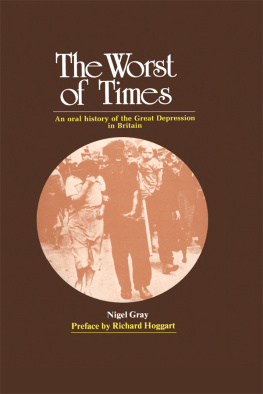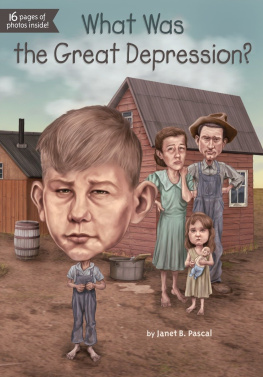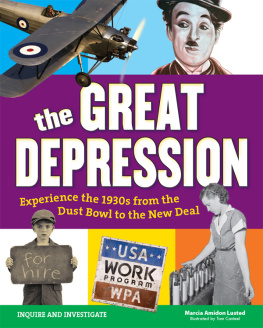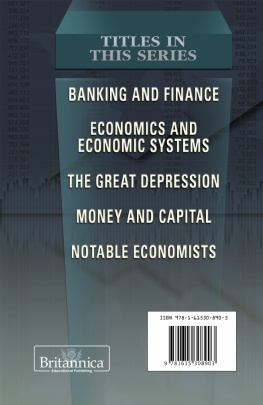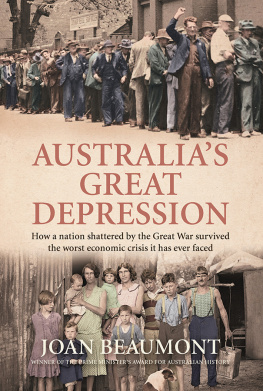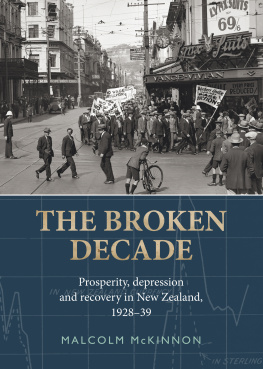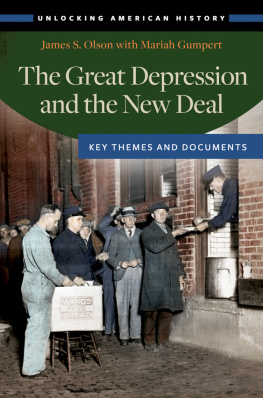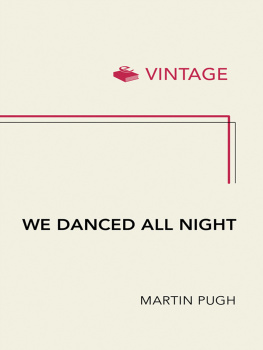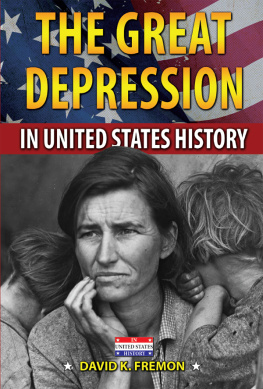For Letty, who also knew hardship
First published 1985 by Wildwood House Limited
Published 2017 by Routledge
2 Park Square, Milton Park, Abingdon, Oxon OX14 4RN
711 Third Avenue, New York, NY 10017, USA
Routledge is an imprint of the Taylor & Francis Group, an informa business
Copyright 1985 Nigel Gray
Preface copyright 1985 Richard Hoggart
All rights reserved. No part of this book may be reprinted or reproduced or utilised in any form or by any electronic, mechanical, or other means, now known or hereafter invented, including photocopying and recording, or in any information storage or retrieval system, without permission in writing from the publishers.
Notice:
Product or corporate names may be trademarks or registered trademarks, and are used only for identification and explanation without intent to infringe.
The worst of times
1. Labour and labouring classesGreat Britain
History-20th century 2. Great Britain
Social conditionsHistory-20th century
I. Gray, Nigel
305.5620941HD8391
Typeset in 10 on 12 point Times by
Tellgate Limited, Swinton Street, London WC2
ISBN 13: 978-0-7045-0513-1 (hbk)
It is unusually difficult to find the right epithets to describe the overall impact of this book. Engrossing and vividsometimes very funnyit certainly is. More: it is at one and the same time shocking and heartening.
Even to someone who, like myself, was brought up in a poor working-class district in the Twenties and Thirties, and who has tried to remain aware of that background, the record as it is filled out in these first-hand accounts is startling. Inevitably, the full impact of what the terms of daily life then were for so many people becomes blurred over the years. Detail after detail in these accounts calls it all up and sets off a flood of feeling: the abomination of the Means Test, the shame of living on tick, the horrors of petty provincial snobbery at the tradesman or small industrialist level, the indignities and injustices suffered at the hands of those dreadful in-between people, the bosses men, the sheer meanness of endless petty and large exploitation, the continuous thread of generosities and decencies, the recurrence of the gas-oven or emigration as the two extreme solutions; above all, an endless fight to preserve self-respect. That is why this book is, in the end, heartening; all in all, the victims come out of it with immense dignitybut far too much patience.
All this, as I say, seems startling at this date, even to one who lived through it. To others, it should come as a revelation. I do not believe that these things are by now sufficiently well-known. Indeed, a great many instruments of modern society are devoted to making sure that we do not know or conveniently forget this part of our immediate past. To judge by recent political choices, or failures to choose, that process is well-advanced.
It is shocking that so recentlyless than forty years agothe largest empire on earth and one of the richest nations should have treated the bulk of its citizens in these inhuman ways. The lack of adequately-evolved public provision in so many sectors (housing and hospitals above all), the grossly inadequate educational system which threw so much talent on the waste-heap, the consistent pressure at all levels to prevent the unions from working effectively for a more just system; all this and much more are a shame to our history. Some of these ills could, in the two pre-war decades, be explained by the world-wide recession; but not by any means all. There was a deep and gross divisiveness at the very heart of British society which radically separated the consciousness of a Lancashire millworkerunderschooled, underhoused, underpaid, undercared for in almost all respects and with no reasonable hope of betterment, from an Old Etoniansure of a good job in the City, sure of a world which embraced the best clubs, Ascot, Lords, an attractive house and a wife to match it all. In less evident ways that divisiveness remains and is being strengthened even now.
In 1939 the two went to the War together, with the Etonian as the officer of course. Six or seven years later they came out to the beginnings of a different world. The first post-war Labour government did not overturn the system, but within its own modes and hence relatively quietly it set off a profound social revolution which was still going on until four or five years ago. Whatever remains to be doneand some of the more difficult moves towards a juster society have still to be faced, but the present government has set them backthis book can help us, first of all, to recognise how far we have come since the great watershed of the War.
It is an exceptionally timely book. Unemployment is once again a major problem, a misery for millions. Just now the Trade Union movement is receiving from the bulk of the mass media and from government even more than its usual share of prejudiced attention. No reasonable personbeginning with most Trade Union leaderswill try to justify either a blind restrictionist rejection of any new methods or an equally blind wish to exploit collectively a commanding position in the economy. But the great bulk of people are immensely more responsible than that. If they are slow in welcoming progress which is likely to put them out of work, when they can see no other provision being made for them, that is because they have justifiably long memories of the horrors of the Thirties, and because they see the new unemployed all around them. It is easy to be brain-washed these days by all the special articles on the attacks on liberty by the big Unions. This book puts the picture in a better perspective. It reminds us, among much else, that until quite recently in some of our major industries if you became known as an agitator for better conditions you were giving yourself a ticket for the dole queue. The Unions had good grounds for building up foot-thick defensive attitudes and they will let them go only slowly, as they see a decent future more firmly secured.
It is a pity, but such is the nature of our communications system, that most people who read this book will be already sympathetic towards it. It should be read by the more avid subscribers to the right-wing popular and not-so-popular press and above all by the members of the present government. But I guess these organs and people will ignore it, or perhaps will dismiss it as an out-of-date attempt to stir up class hatred by harping on ills which have long been swept away. It should also be read in most schools (beginning with Eton). It does indeed show that we have come quite a distancebut from a starting-point which was decades and decades behind where it should have been.
The book also sets off a stocktaking. How far have we really come? What are the next frontiers? Are we making the correct interpretations of needs so that we get the direction and shape of our plans right for the day when under another administration we move again into overdue reforms? At this point we are brought up short. Consider only one issue: housing. In the last thirty years we have cleared away throughout Britain the bulk of that squalid working-class housing which is described in this book. But it is now evident that in far too many instances we have replaced that housing unimaginatively, that we have destroyed not only the rotten old terraces but the chance of retaining the better forms of community life which had grown up within them. The interiors certainly have more comforts and conveniences than would have been dreamt of in the Thirties. But all too often the new districts as a whole give the people who live in them hardly any foothold for creating a proper community life. Instead they make them feel anonymous, fragmented, of no account, the hinds of industry for the late twentieth century. The rebuilding of much of Hunslet, Leeds, where I was brought up, the redevelopment of parts of Deptford, in South East London, where I now live, are in many parts so brutally mechanistic, so un-human in a strict sense of those words, that you wonder what sense of the people who were to live there the planners had in their minds. As I write, the new Hunslet is being torn downsometimes we move forward.

